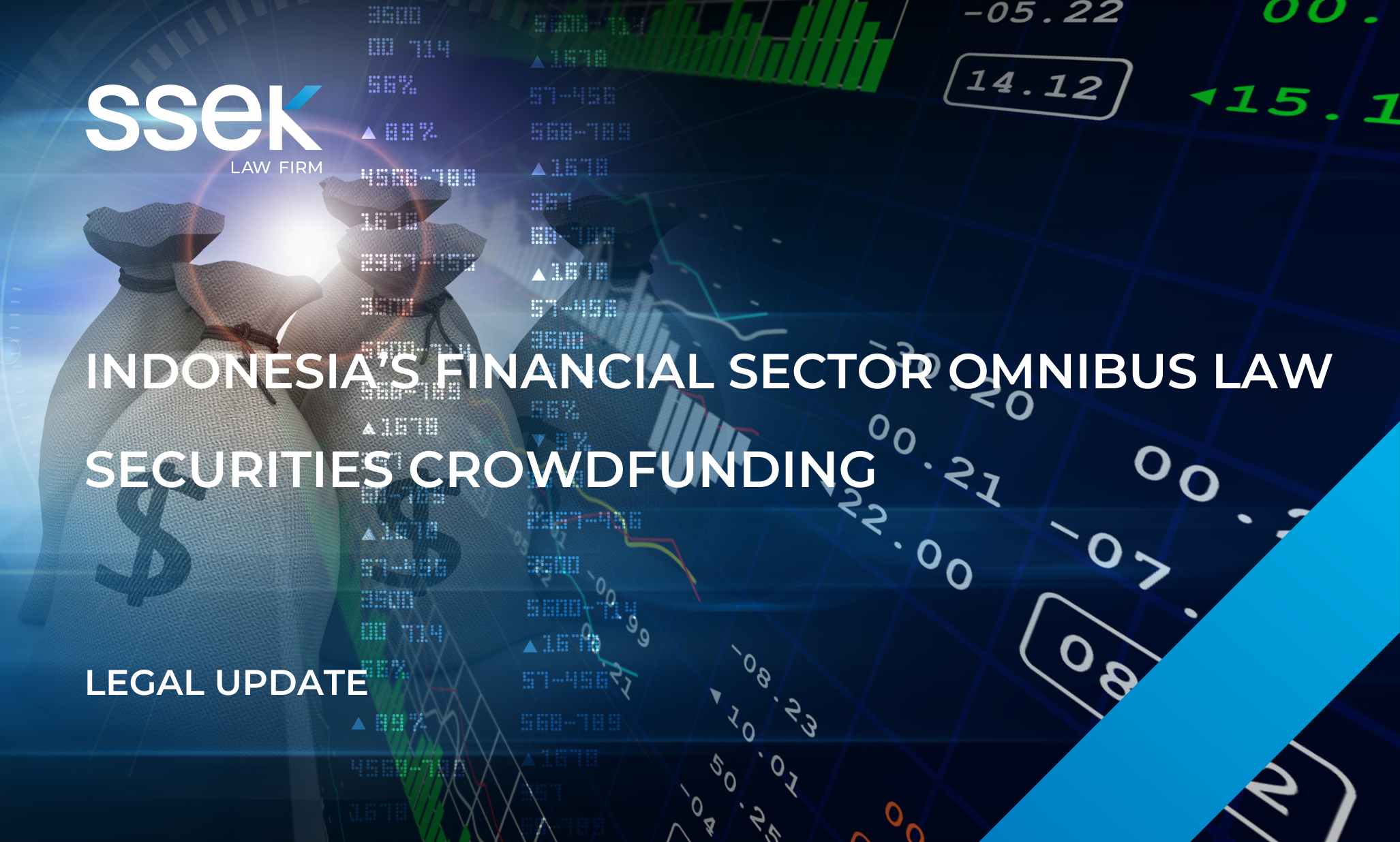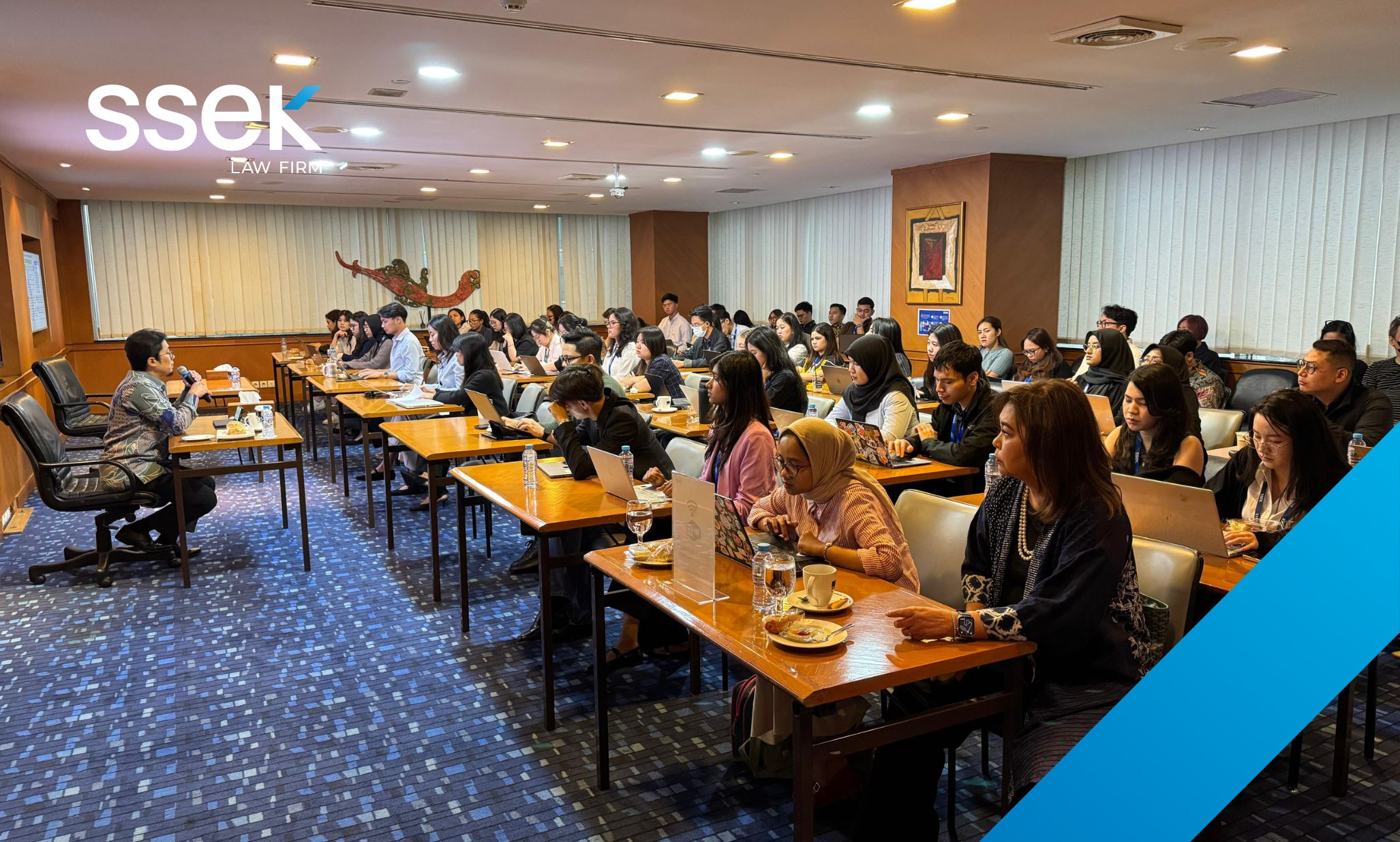


In January 2023, Indonesia enacted Law No. 4 of 2023 on Financial Sector Development and Strengthening, or in Indonesian Pengembangan dan Penguatan Sektor Keuangan (PPSK), which is better known as the Financial Sector Omnibus Law, to regulate the country’s financial sector. Comprising 27 chapters and 341 articles and replacing or amending 17 laws, the Financial Sector Omnibus Law introduces sweeping changes.
SSEK Law Firm is producing a series of articles to highlight some of these key changes under the Financial Sector Omnibus Law, beginning with securities crowdfunding.
Securities crowdfunding has been a saving grace for funding and sustaining micro, small, and medium enterprises (“MSME”), especially during the Covid-19 pandemic. Securities crowdfunding is a fundraising method using a joint-venture scheme in the capital market for companies to commence or develop their businesses. Instead of applying for a loan from banks, with high interest rates and rigid standards, MSMEs can obtain funding from investors through a securities crowdfunding platform.
This growing practice has been a tremendous boon to the MSME economy in Indonesia. The inclusion of securities crowdfunding in the Financial Sector Omnibus Law underlines the need to better regulate and supervise a practice that manages public funds.
Securities Crowdfunding in Indonesia
One of the authorities of Indonesia’s Financial Services Authority (Otoritas Jasa Keuangan or “OJK”) amended by the Financial Sector Omnibus Law, by way of amending several provisions under the Capital Market Law, concerns the organization of raising public funds through the offering of securities using the services of an electronic system operator (securities crowdfunding). This OJK authority is regulated under Article 5(a)(7) of the Capital Market Law.
A securities crowdfunding platform is viewed as better for streamlining the process of raising funds without additional fees or surcharges, efficiently expanding one’s audience. Before the Financial Sector Omnibus Law, crowdfunding was regulated under OJK regulations, which recognized three types of securities generally offered on crowdfunding digital platforms, as follows:
- Equity Securities Crowdfunding (Efek Bersifat Ekuitas or "EBE"): In an EBE (share) offering, the issuer carries out a rights issue to issue new shares or other equity that can be converted into shares, which will be offered to investors with a certain valuation. Investors who purchase EBE will own a certain percentage of the issuing company.
- Debt Securities Crowdfunding (Efek Bersifat Utang or "EBU"): Issuers who offer an EBU can publish debt securities (e.g., bonds or letters of credit) denominated in Rupiah, which may be used to fund a project for a certain time, with a maturity no longer than two years. Investors who participate in an EBU are considered as lenders and obtain benefit from the repayment of the loan with interest.
- Sukuk Crowdfunding: Sukuk operate in the same way as an EBU, but they must comply with sharia principles. Investors benefit from profit-sharing (nisbah) in accordance with the profits derived from the project.
The Financial Sector Omnibus Law is the new umbrella regulation for securities crowdfunding, wherein the OJK and other relevant institutions will enact the implementing regulations for crowdfunding activities. Article 69A, paragraphs (2) and (3) of the Capital Market Law expressly states that the OJK will implement policies, particularly on the maximum requirements for funds raised and the requirements for investors who can use the securities offering mechanism using the services of a licensed securities crowdfunding operator.
As of 2022, the OJK reported that there were 10 licensed securities crowdfunding companies, with total funding collected reaching IDR 50.7 billion.
Crowdfunding will not be considered a public offering and does not need to follow the public offering procedure as specified in the Capital Market Law when (i) the operator offering the securities is licensed by the OJK; (ii) the securities offering is made within a maximum period of 12 months; and (iii) the total funds raised through the securities offering is a maximum of IDR 10 billion.
Conclusion
Given that securities crowdfunding is now governed under the Capital Market Law by virtue of the Financial Sector Omnibus Law, business actors should expect further OJK regulation on public offerings by high-innovation companies with fast growth, particularly for the types of shares that can be issued through a securities crowdfunding digital platform.
This publication is intended for informational purposes only and does not constitute legal advice. Any reliance on the material contained herein is at the user’s own risk. All SSEK publications are copyrighted and may not be reproduced without the express written consent of SSEK.









